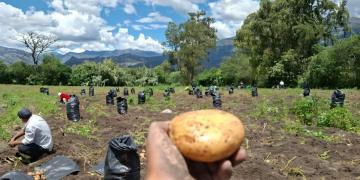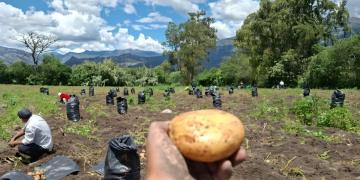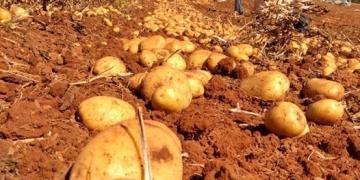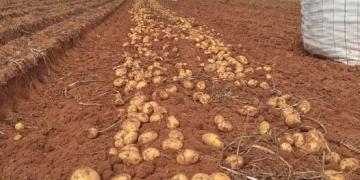Germany expects its largest potato harvest in 25 years: record acreage and yield
Germany thus consolidates its position as one of Europe’s largest potato producers, with a level of supply that will impact domestic and international markets.
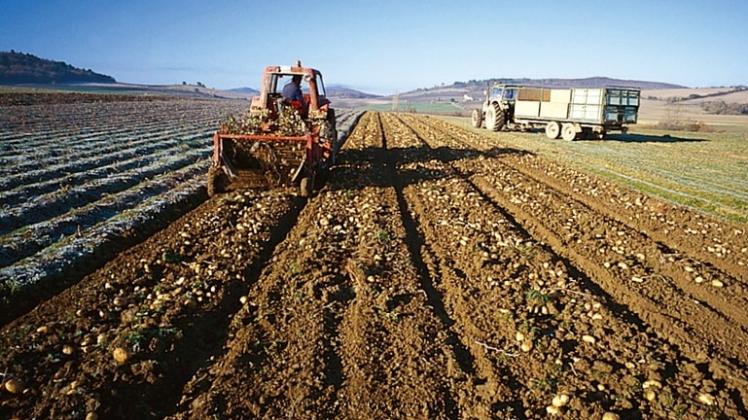
The 2025 potato harvest in Germany is shaping up to be the largest in a quarter of a century. According to preliminary results from the Special Harvest and Quality Assessment (SCA), production is expected to reach approximately 13.4 million tons, 5.3% more than in 2024 and an impressive 17% above the multi-year average. Similar figures can be found back to 2000.
This data confirms not only the strong performance of the 2025 campaign, but also the crop’s recovery trend after years marked by climatic instability. Germany thus consolidates its position as one of Europe’s major potato producers, with a supply level that will impact domestic and international markets.
Increase in cultivated area in Germany
One of the key factors behind this record is the growth in the area devoted to potato cultivation, which increased by 6.7% compared to the previous year, reaching 301,000 hectares. This is the highest figure since the beginning of the millennium, reflecting German farmers’ commitment to this tuber, both for fresh consumption and for the processing industry.
The increase in area is partly due to the higher profitability expected in previous campaigns and the favorable growing conditions that encouraged producers to plant more hectares.
Yields per hectare at outstanding levels
In addition to the expansion in area, the average yield per hectare also reached a remarkable level. In 2025, an average of 44 tons per hectare is expected, representing a 5% increase over the multi-year average. Although this yield is 1% lower than in 2024, it remains at historically high levels.
This balance between surface area and productivity has been crucial in achieving the record harvest that today marks a turning point in the German potato sector.
Favorable weather conditions during the campaign
The weather played a key role. After a sufficiently wet winter, the warm, dry spring allowed for optimal planting time and success. The first early potatoes could be harvested without delay, and irrigation was applied whenever necessary.
However, May and June brought hot, dry weeks that tested crop resilience. Finally, the July rains alleviated water stress, although they also increased disease pressure in some areas. This climatic balance resulted in more favorable plant development than in the previous two years.
Impact on producer and consumer prices
The abundant potato harvest in Germany is having immediate repercussions on the markets:
Producer prices for early potatoes began 2025 at levels well below those of previous campaigns.
Farmers are currently receiving a third less for table potatoes from the main harvest than last year.
For consumers, the situation is different: in August 2025, table potatoes in supermarkets cost 15% less than in August 2024.
Ultimately, farmers face lower incomes per kilo produced, while German households benefit from lower prices.
Importance of preliminary data
The Special Harvest and Quality Assessment (SCA), together with the Main Land Use Survey, provides early information on the quantity and quality of strategic crops nationwide. For German potatoes, the results are based on representative sample plots.
So far, only about 42% of the EEC’s nearly 700 plots have been evaluated, so the data could change once the analysis is completed. However, the initial results already suggest that the 2025 campaign will be one of the most important in recent decades.
Consequences for the sector and prospects
The production record in Germany poses a dual scenario:
Positive for the consumer, with lower prices and wide availability.
Challenging for the farmer, who must deal with reduced income despite having achieved historic yields.
This context reinforces the importance of market management instruments, agricultural insurance, and support policies that balance price fluctuations.
The 2025 crop year will serve as a benchmark for assessing the resilience of the German potato sector and its ability to adapt to climate and economic variability.
Fuente: Traducido por Argenpapa de: agronewscastillayleon.com

